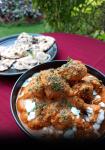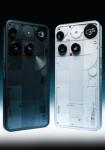Good news for chocoholics. A study has found that small doses of dark chocolate can prevent clotting of blood in the arteries and, thus, keep heart attacks at bay.
Johns Hopkins researchers did the first biochemical analysis to explain why just a few squares of chocolate a day can almost halve the risk of heart attack death in some men and women by decreasing the tendency of platelets to clot in narrow blood vessels.
"What these chocolate 'offenders' taught us is that the chemical in cocoa beans has a biochemical effect similar to aspirin in reducing platelet clumping, which can be fatal if a clot forms and blocks a blood vessel, causing a heart attack," says Diane Becker, M P H, Sc D, a professor at The Johns Hopkins University School of Medicine and Bloomberg School of Public Health.
Becker cautions that her work is not intended as a prescription to gobble up large amounts of chocolate candy, which often contains diet-busting amounts of sugar, butter and cream.
But as little as 2 tablespoons a day of dark chocolate - the purest form of the candy, made from the dried extract of roasted cocoa beans - may be just what the doctor ordered.
Researchers have known for nearly two decades that dark chocolate, rich in chemicals called flavonoids, lowers blood
pressure and has other beneficial effects on blood flow.
The latest Hopkins findings, presented on November 14 at the American Heart Association's annual Scientific Sessions in Chicago, identified the effect of normal, everyday doses of chocolate found in ordinary foods.
This is unlike previous studies, which found decreased platelet activity only at impractically high doses of flavonoids equivalent to eating several pounds of chocolate a day.
"Eating a little bit of chocolate or having a drink of hot cocoa as part of a regular diet is probably good for personal health, so long as people don't eat too much of it, and too much of the kind with lots of butter and sugar," says Becker.
In the study, 139 people Becker were disqualified from a much larger study looking at the effects of aspirin on blood platelets.
The Genetic Study of Aspirin Responsiveness was conducted at Hopkins from June 2004 to November 2005 and enrolled more than 500 men and 700 women participants nationwide.
Shortly before aspirin dosing began for the subjects, they were told to stay on a strict regimen of exercise and to refrain from smoking or using foods and drinks known to affect platelet activity.
These included caffeinated drinks, wine, grapefruit juice - and chocolate.
The non-compliers - who admitted to eating chocolate - were a diverse group who got their flavonoid 'fix' from a variety of sources, including chocolate bars, cups of hot cocoa, grapes, black or green tea, and strawberries.
And while they were excluded from the aspirin study, Becker and her team scoured their blood results for chocolate's effect on blood platelets, which the body recycles on a daily basis.
When platelet samples from both groups were run through a mechanical blood vessel system designed to time how long it takes for the platelets to clump together in a hair-thin plastic tube, the chocolate lovers were found to be less reactive.






